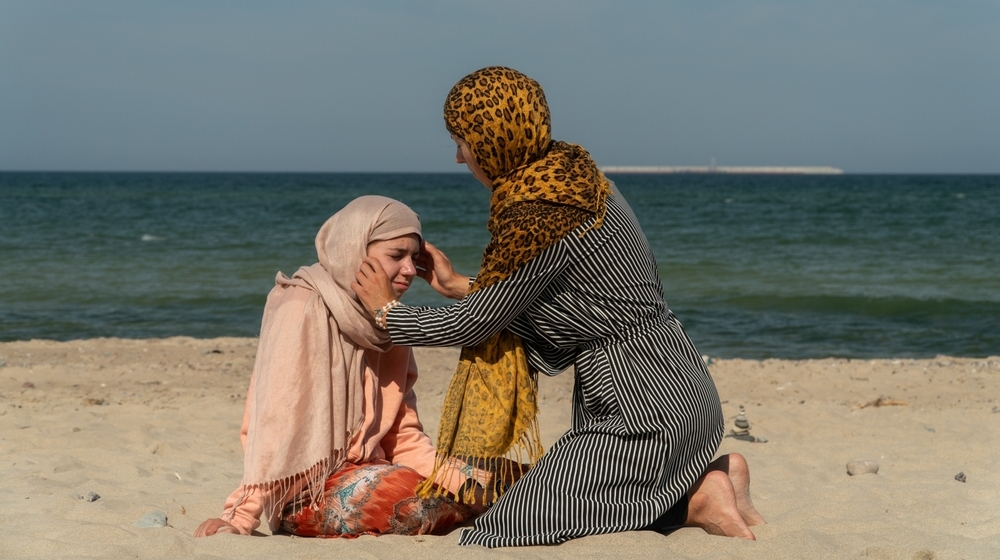Is It Permissible to Marry a Woman Who Doesn’t Cover Her Hair, or Is This Seen as Approving a Blameworthy Act?
Answered by Shaykh Irshaad Sedick
Question
Is a woman not covering her hair considered a mutabarrija? Is it permissible to marry her while respecting her choice, or is this viewed as approving a blameworthy act? What is the correct approach according to Islamic teachings?
Answer
In the Name of Allah, the Most Merciful and Compassionate. May Allah alleviate our difficulties and guide us to what pleases Him. Amin.
A woman who does not cover her hair in the presence of non-mahrams is considered to be in a state of tabarruj—a term used to describe displaying beauty in a way that contradicts the guidelines of modesty in Islam.
Allah (Most High) commands in the Quran: “And tell the believing women to lower their gaze and guard their chastity, and not to reveal their adornments except what normally appears. Let them draw their veils over their chests…” [Quran, 24:31]
Modesty and adherence to Allah’s commands are essential for both men and women. However, this does not necessarily prohibit marrying a woman who does not yet observe the hijab. Marriage in Islam is founded on mutual respect, love, and the hope of positively influencing one another.
The Prophet (Allah bless him and give him peace) said: “A woman is married for four reasons: her wealth, her lineage, her beauty, and her religion. So marry the religious one, or you will be a loser.” [Bukhari, Muslim]
Responsible Guardians
Husbands and Fathers are responsible by Allah for their dependents. Allah says, “O you who believe! Ward off yourselves and your families against a Fire (Hell) whose fuel is men and stones” [Quran, 66:6]
And as the Prophet (Allah bless him and give him peace) said, “Each of you is a shepherd and is responsible for his flock… the man is a shepherd over the members of his household and is responsible for his flock…” [Agreed Upon]
If a person puts forth all their effort and strives to the best of their ability, but still does not achieve the desired results, Allah will forgive them and will not punish them. On the contrary, He will reward them for their efforts, as Allah does not let the rewards for any good deed go to waste.
Potential and Willingness for Growth
While outward religiosity is critical, a holistic view of a person’s faith and character is paramount. If a prospective spouse shows sincerity in faith and openness to learning and spiritual growth, marriage can be an avenue for mutual support in obedience to Allah (Most High).
Respecting her choice does not mean approving of blameworthy acts. Rather, the correct approach is to engage with wisdom, patience, and gentle encouragement. As Allah (Most High) says: “Invite all to the Way of your Lord with wisdom and kind advice, and only debate with them in the best manner.” [Quran, 16:125]
Therefore, marrying such a woman can be permissible, provided that the husband maintains his duty to enjoin good with kindness and does not neglect his responsibility to encourage her towards fulfilling the commands of Allah (Most High). Ultimately, guidance is from Allah, and one must convey the truth with compassion.
If the suitor in question cannot bear patience with the development of the woman in question while she develops, seeking a wife who practices Islam more intricately would be best, and Allah knows best.
I pray this is of benefit and that Allah guides us all.
[Shaykh] Irshaad Sedick
Checked and Approved by Shaykh Mohammad Abu Bakr Badhib
Shaykh Irshaad Sedick was raised in South Africa in a traditional Muslim family. He graduated from Dar al-Ulum al-Arabiyyah al-Islamiyyah in Strand, Western Cape, under the guidance of the late world-renowned scholar Shaykh Taha Karaan (Allah have mercy on him), where he taught.
Shaykh Irshaad received Ijaza from many luminaries of the Islamic world, including Shaykh Taha Karaan, Shaykh Muhammad Awama, Shaykh Muhammad Hasan Hitu, and Mawlana Abdul Hafeez Makki, among others.
He is the author of the text “The Musnad of Ahmad ibn Hanbal: A Hujjah or not?” He has been the Director of the Discover Islam Centre, and for six years, he has been the Khatib of Masjid Ar-Rashideen, Mowbray, Cape Town.
Shaykh Irshaad has fifteen years of teaching experience at some of the leading Islamic institutes in Cape Town). He is currently building an Islamic podcast, education, and media platform called ‘Isnad Academy’ and has completed his Master’s degree in the study of Islam at the University of Johannesburg. He has a keen interest in healthy Prophetic living and fitness.
